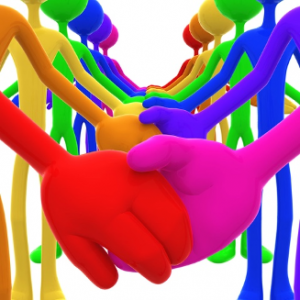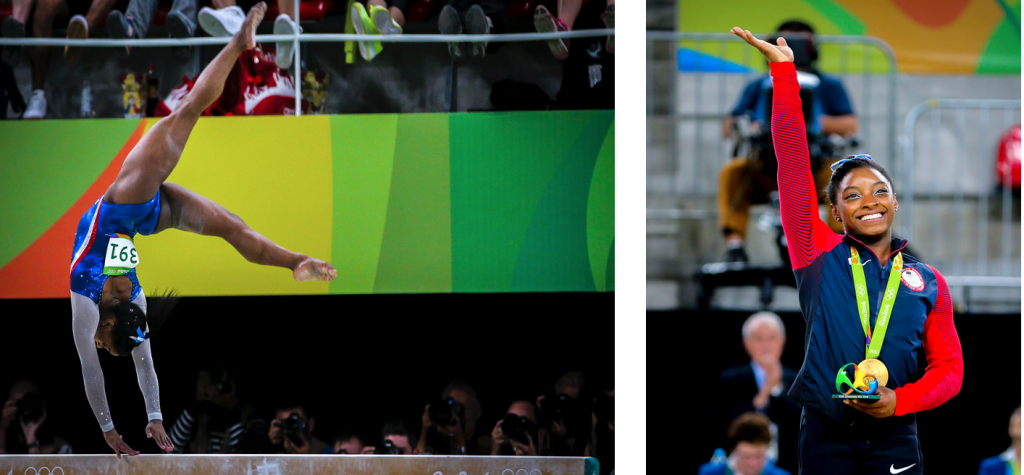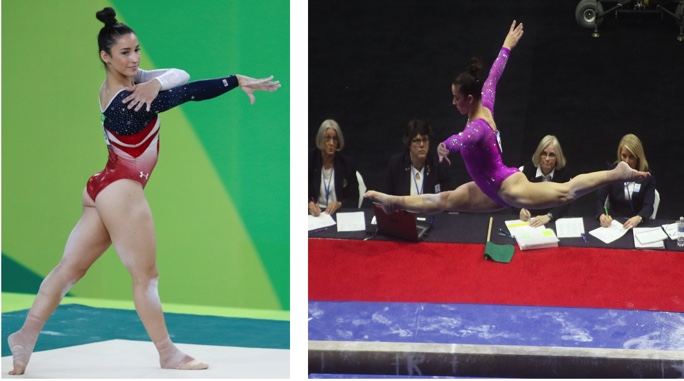9 The Criminal Justice System and Sexual Violence
Sarah Whelan
After reading the title of this chapter, what were your immediate thoughts? It absolutely infuriates me that this issue has not been resolved. In my opinion, no matter how many campaigns, activists, programs, etc. victims of sexual violence will stay silent until the criminal justice system fixes the way they handle these cases. Until those in authority treat victims with care, intent, and trust, there will be no change. These campaigns may be a stepping stone to drive the criminal justice system to make better use of the provided guidelines and frameworks on sexual violence. But if the system chooses to ignore the campaigns and fails to use them as motivation to change, then could this activism be a waste of time? Do we need more activism, so the issue becomes impossible to ignore? 100%! This issue and the activism that could help alleviate it, can be displayed through many platforms and industries, including a very relevant one: sport.
What is sexual violence?
Sexual violence is an umbrella term for anything that includes physical or psychological violence, executed through sexual means or by targeting sexuality (Government of Ontario, 2020). It takes on many different forms including sexual abuse, sexual assault, rape and stalking and can affect people of every age, race, cultural background, and socioeconomic status.
What is the issue?
Those who work in the criminal justice system, like police officers, are generally the first to encounter a sexual violence case when it is presented. There are specific procedures to ensure the safety of the victim and to relieve the possibility of shame or self-blame the victim may experience (New York State Coalition Against Sexual Assault, 2003). However, these people in authority often add to the stress, anxiety, and ultimately the silence around sexual violence. Imagine trusting someone whose job is to keep you safe, but instead does the opposite? Imagine building up the strength to come forward about your experience just to have it turned down completely? This is what too many sexual violence victims experience, and this is why the issue must be addressed further.
There are so many frameworks and guidelines provided to those within the criminal justice system that outline the “do’s” and “don’ts” of handling a sexual violence case (Cybulska, 2007). You would think that people in authority would use these guidelines religiously. Unfortunately, that is not the case. Sexual violence is the least reported crime, and the silence behind it continues to be an issue today (Sexual Assault, 2014). The reasoning behind this silence is plentiful, but in part it stems from the insensitivities and unjust actions of those within the system. Some cases presented to the system do not proceed due to evidence issues or victim credibility (Cybulska, 2007) Some fall through because of how long the case is drawn out. And some are just dismissed when they are reported. In every case, the criminal justice system fails to do its duty in protecting and supporting those who speak up. These unjust actions conducted by the system have added to and created a new set of reasons for victims to remain silent. Because of how prevalent the mishandling and rejection of sexual violence is, many victims feel their experience could be dealt with differently (Cybulska). They think their experience is unimportant or too personal. Victims often do not want to get the police involved because they feel that people in authority won’t do anything to resolve the issue or that they will be publicly humiliated for reporting their experiences.
Even after exploring many different sources about sexual violence and writing about the variety of reasons for victim silence, I still have so many questions and concerns. How is it possible that something so serious can be shut down so effortlessly? How can the system listen to and see the face of someone who has been physically, psychologically, or emotionally damaged and simply do nothing about it? Why isn’t anyone doing anything to address this issue to the entire world? Is it because it is an uncomfortable and unfortunate topic of discussion? Or because it has become a societal norm to remain silent?
Who can experience sexual violence?

EVERYONE. No matter your gender, sex, racial or cultural background, religion, age, or social status, any person might experience the horrific actions of sexual violence. However, there are some people who are unfortunately at a higher risk of being victimized. According to Canada’s Department of Justice, women and girls are at a higher risk of being sexually violated (Sexual Assault, 2014). But Indigenous women and girls are at an even greater risk, with 57% of Indigenous women or girls being sexually violated within their lifetimes. Additionally, more than half of sexual assault/abuse victims are under the age of 17. 1 in 4 Canadian women and 1 in 7 men will be sexually violated during their lifetime.
These are only SOME of the statistics brought forth by the Government of Canada. If those facts don’t shock you or at least make you shake your head, then what will? Because it is clear that sexual violence is a serious, major issue in today’s society and one that must be addressed.
Athletes and Sexual Violence

The life of an athlete can already be stressful and exhausting, but with the addition of an experience with sexual violence these feelings may be ten-fold. Simone Biles is an Olympic Multi-Gold Medalist for the USA Gymnastics team who was one of the hundreds who were sexually abused by the team’s doctor. Biles describes going through a “really dark time” with anxiety and depression after her experience (Ritschel, 2020) She states that she slept so much because that felt like the closest thing to death without self-harm (Ritschel). Sleeping was her escape from everything she was dealing with. Additionally, because some of her teammates had it worse than her, she felt as if her experience didn’t actually happen, so she kept quiet.
Although this experience happened in the U.S.A., it is a very relevant issue here in Canada as well. A CBC News and Sports investigation found that in the last 20 years, more than 200 Canadian coaches were convicted of sexual violence against minors (Ward & Strashin, 2019). This has been an issue for years, but it is only slowly coming to light now and is “just the tip of the iceberg”. However, because CBC’s findings were revealed, coaches across Canada have been working hard to reform the sport system. I believe that exposing the findings of investigations like this is one of the best ways to address the issue head on and create lasting change.
Learn more about the USA Women’s National Gymnastics team by watching the Netflix Original “Athlete A”.

Simone Biles, a member of USA Women’s Gymnastics team who has won 25 medals, 19 of them being gold (USA Gymnastics, n.d.).
Can it be resolved? By whom?
Absolutely. However, it cannot be resolved overnight, and it will never happen if the issue isn’t addressed and discussed. Resolving the silence behind sexual violence due to the mishandling and injustices within the criminal justice system is going to be a process. This process begins through education about what the issue is and why the issue continues to exist. We need to show the world how much systems of authority lack in supporting and handling sexual violence incidents. How can we do this? Through activism and discussing strategies for social change by using platforms that have the ability to reach various populations around the world, for example, professional sports or other celebrity venues.
What is being done right now? Who is pushing for change? (Activism and strategies for social change)
There are many campaigns that work to prevent sexual violence and to help those who have been victimized to get their voice heard. But there still isn’t enough. Similar to the way athletes have been supporting the #BlackLivesMatter movements, well known people like celebrities and athletes should use their platform to educate and address the silence around sexual violence. Although there are several lenses through which sexual violence could be perceived, the injustice and the failures of the criminal justice system is an important lens. I would hope that when the lack of help from the criminal justice system is displayed, many of us will become frustrated and disappointed motivating us to want change.
In my opinion, this motivation will arise when the most influential people speak up about the issue. From observation, celebrities and athletes seem to be the root of inspiration in regard to social change. I know when I watch an athlete speak up about any social issue, I feel something building within me to want to be a part of the change. I get a burst of energy to do everything I can to make our world a better place, no matter how big or small the impact.
On a local level of activism, athletes at St. Francis Xavier University in Antigonish, Nova Scotia launched a campaign called “We Stand Together”. The campaign was initially introduced by Sarah Bruce, a second-year soccer player at the university, in response to sexual violence charges against members of their varsity football team (Canadian Press, 2017 & Bundale, 2017). I remember seeing this campaign all over social media. So many people who did not attend St. FX reposted and responded to this campaign. It didn’t stay within Nova Scotia, it spread through Ontario, with Queen’s and Western student-athletes reposting and supporting. I witnessed the beginning of social change, and although I might have made the smallest impact, because I reposted as well, people in my hometown, just outside of Ottawa were also exposed to this issue. What began within one campus spread through many more communities, not only at other universities but within the general population as well. One person, one campaign creating change within one university, and now within many, many more.
Aly Raisman, a U.S. Olympic gymnast launched a campaign called “Flip The Switch” that is specific to educating adults about sexual violence among youth athletes (Gstalter, 2018). Her campaign was launched in an effort to address sexual violence in sport by providing free training to detect and prevent sexual violence in children. Raisman stated, “we all need to be willing to confront it (sexual violence) head-on”, which is exactly the approach we need to take (Gstalter). We need to get out of our comfort zone and talk about this issue, because it is unacceptable that the silence behind sexual violence has become the norm. Athletes, including Michael Phelps and Gus Kenworthy, responded to Raisman’s campaign asking others to join them in completing the program she created (Gstalter).

Aly Raisman, member of the USA Gymnastics team and the first to speak up about her experience.
Athletes have the ability to make their voices heard so much more effectively than you and I. When I hear their voices and see them express their concern and disappointment, I almost feel obligated to be concerned as well. I think that’s what’s going to drive social change. What can we do without having a high-level platform? Educate ourselves. Listen to those who are speaking up and spread what we’ve learned to others, for them to then spread their knowledge. It’s a domino effect. Although in this chapter I approached sexual violence through the lens of the criminal justice system, that is not the only one that exists. That is not the only way we have to talk about sexual violence. It needs to become a norm to speak up, not to stay quiet. It needs to be confronted no matter how uncomfortable it might be, not avoided or rejected. Let’s work together to initiate a domino effect. Spread your knowledge on the silence behind sexual violence and educate people on how it is a continuing issue everywhere. Together, we can create change.
References
Bundale, B. (2017, December 5). Athletes ‘stand together’ with sex assault survivors after players charged. CBC News. CBC. https://www.cbc.ca/news/canada/nova-scotia/st-f-x-campus-sex-assault-survivors-charges-soccer-team-1.4433747
Canadian Press. (2017, December 6). Athletes ‘Stand Together’ With Sex Assault Survivors After Players Charged. iHeartRadio, 100.9 BigDogRocks. https://www.iheartradio.ca/big-dog-100-9/news/athletes-stand-together-with-sex-assault-survivors-after-players-charged-1.3485673
Cybulska, B. (2007). Sexual Assault: key issues. Journal of the Royal Society of Medicine, 100(7), 321-324. https://www.ncbi.nlm.nih.gov/pmc/articles/PMC1905867/
Government of Canada, Department of Justice. (Modified, 2015, January 7). Bill C-46: Records Applications Post-Mills, A Caselaw Review. Canada.ca. https://www.justice.gc.ca/eng/rp-pr/csj-sjc/ccs-ajc/rr06_vic2/p3_4.html
Government of Ontario. (2020, April 30). Sexual Violence. Queen’s Printer for Ontario. https://www.ontario.ca/page/sexual-violence
Gstalter, M. (2018, March 18). Olympic gymnast launches campaign to fight sex abuse in youth sports. The Hill. https://thehill.com/blogs/blog-briefing-room/news/377470-olympian-aly-raisman-starts-new-campaign-to-fight-sex-abuse-in
Krug, E.G. et al., eds. “Chapter 6: Sexual Violence.” World report on violence and health. Geneva, World Health Organization, 2002, pp. 149-173.
New York State Coalition Against Sexual Assault. (2003, July 22). Pocket Guide for Police Response to Sexual Assault. POSTCouncil. https://www.ncjrs.gov/ovc_archives/sartkit/tools/lawenforcement/Pocket%20Guide%20for%20Police%20Response%20to%20Sexual%20Assault.pdf.pdf
Rape, Abuse & Incest National Network. (2020). Effects of Sexual Violence. RAINN.org. https://www.rainn.org/effects-sexual-violence
Ritschel, C. (2020, July 10). Simone Biles opens up about Larry Nassar abuse. Independent. https://www.independent.co.uk/news/world/americas/simone-biles-larry-nassar-sexual-abuse-olympics-gymnastics-usa-a9611386.html
Sexual Assault. (2014). Sexual Assault Statistics in Canada. https://www.sexassault.ca/statistics.htm
USA Gymnastics. (n.d.). Athletes: Simone Biles. Usagym.org. https://usagym.org/pages/athletes/athleteListDetail.html?id=164887
Ward, L., & Strashin, J. (2019, February 10). Sex offences against minors: Investigation reveals more than 200 Canadian coaches convicted in last 20 years. CBC Sports. https://www.cbc.ca/sports/amateur-sports-coaches-sexual-offences-minors-1.5006609?cmp=newsletter-The+Buzzer+-+Monday+Feb+11+2019

